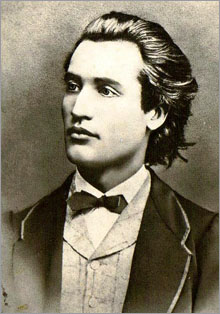Roberto Da Rin
International Editor of Il Sole 24 Ore and associate of EditoRed
A fleeting meeting and a cordial greeting, on the sidelines of a denied interview. “You Europeans cannot understand Peronism”. Carlos Menem dismissed me thus, with few words and a sly smile. The year was 1998. The Argentine President accepted my request for an interview, endorsed and registered by all the intermediate officials of the Casa Rosada; but then, at the last moment, an unforeseen circumstance forced him to cancel ‘the 20-minute coffee break’ granted by his Press Office. The great old man, political genius and champion of the “viveza criolla”, postponed the appointment for a few weeks. The telluric movements within his party and the imminent financial instability of the country suggested him to postpone the meeting sine die.
The new president Javier Milei looks different from Menem, sideburns aside. However, there are similarities between the two, especially if we look at Argentinomics, the economic program. Menem’s ‘first world’ Plan and Milei’s Chainsaw Plan. The latter detests Peronists, but an unmissable essay by Eduardo Abrevaya ‘A Thousand and One Peronist Nights’ reminds us that ‘in Argentina even anti-Peronists are Peronists’. Menem, obsessed by international rating, blinded by an excessive ambition, proper and unjustified for his country, has led Argentina to the abyss. Milei, who has only been in office for a few weeks, wields the gigantic chainsaw, symbolic counterpart of a policy that will cut health care, schools, salaries, ministries. The screeching of the chainsaw, accompanied by the shouts of the president, who a few days ago, boarding an Aerolineas Argentinas flight, greeted the other passengers with the usual: “Viva la libertad, carajo”.
The assonances. Menem was elected with prices soaring out of control, hyper-inflation at 4,900%, an exhausted electorate, an economic crisis caused by the low prices of agricultural raw materials. Of which Argentina is a major producer. The Turk, Menem’s nickname, son of Syrian immigrants, was the architect of a great deregulation.
Milei won the elections in a macroeconomic framework with several similarities: inflation of 140%, poverty rate above 40% and a monetary policy unable to give stability to the peso, Argentina’s currency.
The bills presented during the electoral campaign re-launched dollarization, even foreseeing the abolition of the national currency, the peso. Difficult to implement, but announced. Its decree is the beginning of a new deregulation.
Menem (1930-2021) governed for ten years, from 1989 to 1999, with the unacceptable brazenness of one who knows how to move in the belly of the Argentine White Whale, Peronism. Always changing. From the extreme left, flanking the Monteneros, to the extreme right, close to the generals of the dictatorship (1976-1982) and in those fifty shades of gray that allow navigating in always murky waters.
Menem managed to leave the Titanic, shortly before the disaster, but he did not escape the political pillory of those who led a country to default in 2001. He, in tandem with Economy Minister Domingo Cavallo. Street clashes, 39 deaths and an unprecedented recession.
Just before Christmas, Milei presented a maxi decree. The key points are the following: repeal of the law that prevented the privatization of state-owned companies and their transformation into corporations; repeal of the industrial and commercial promotion laws; deregulation of the skies and privatization of the national airline Aerolíneas Argentinas; deregulation of satellite Internet services to allow the entry of operators such as Starlink… In short, the beginning of a new season of economic and industrial policy of a totally liberalist nature.
A final analogy. Milei renounced Argentina’s entry into the Brics (Brazil, Russia, India, China and South Africa) and relaunched the relationship with the United States, albeit tormented by an endless tug-of-war with the International Monetary Fund. Menem liked to repeat that there are close and indissoluble relations between the United States and Argentina, “carnal relations”. It has not brought him luck.
© This article was originally published in Il Sole 24 Ore, Italy, with whose permission we reproduce it. Read here the original text in Italian






